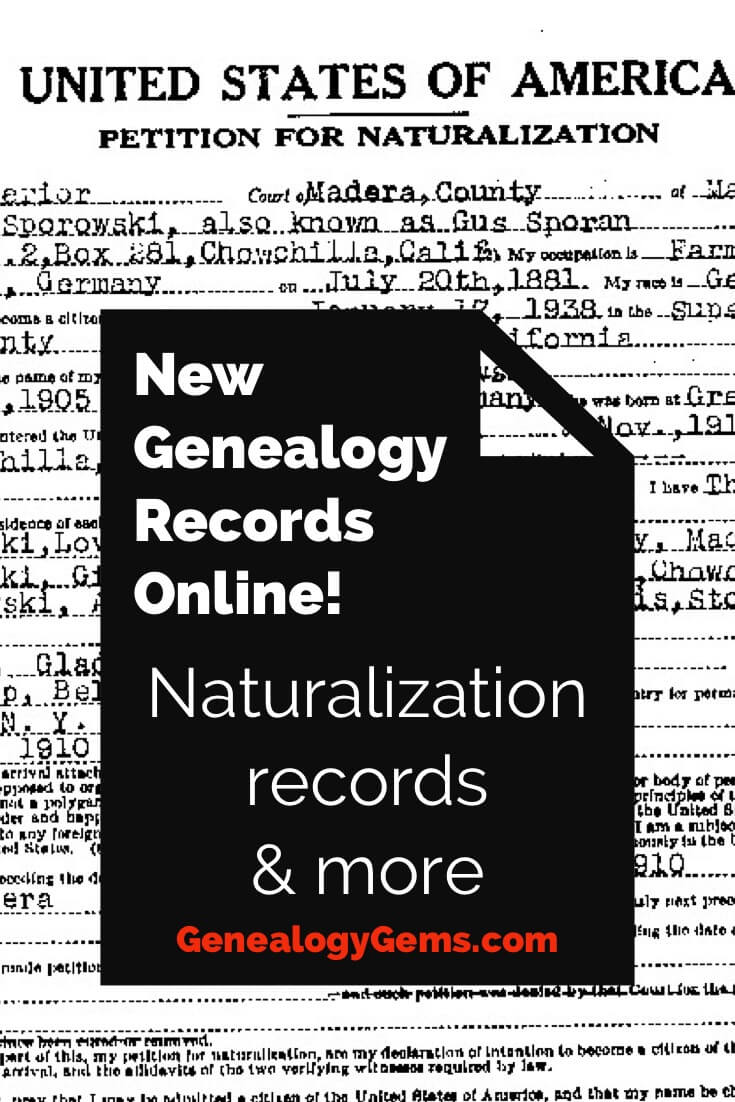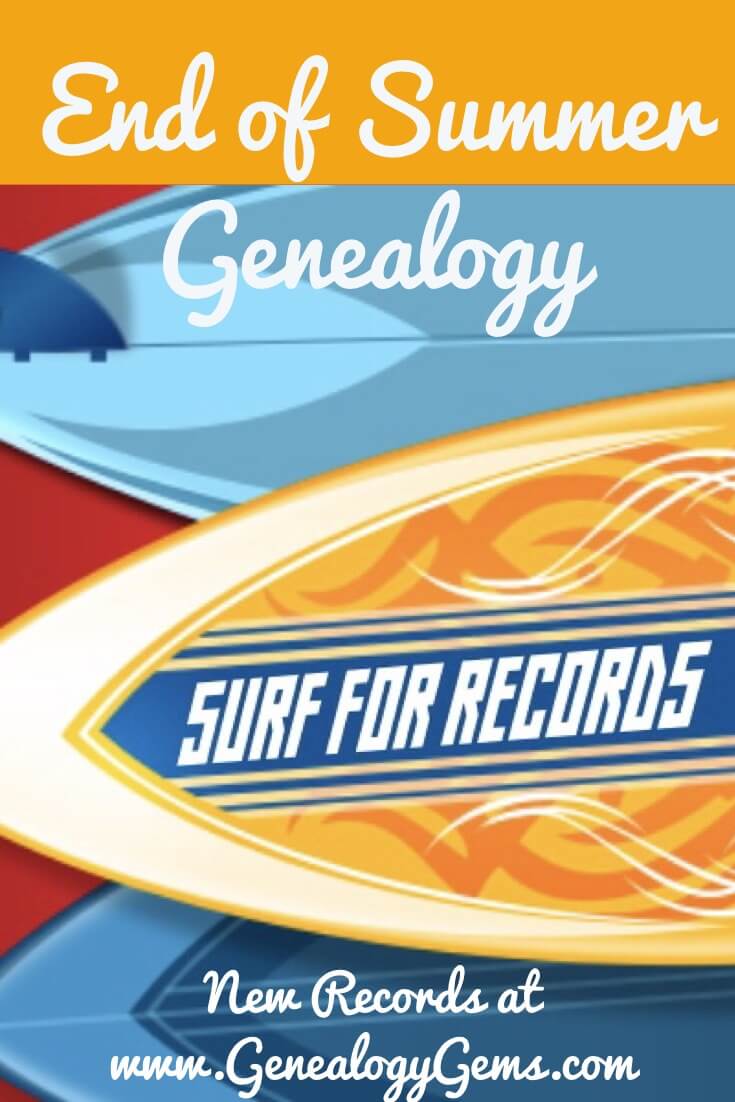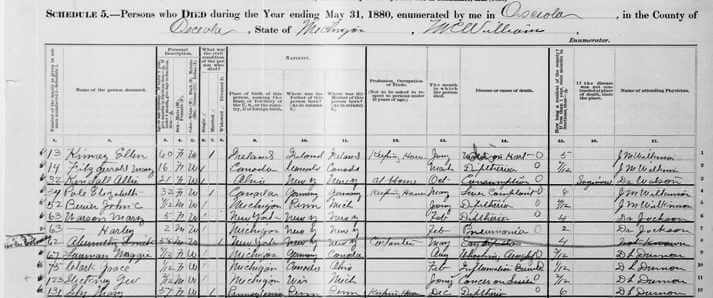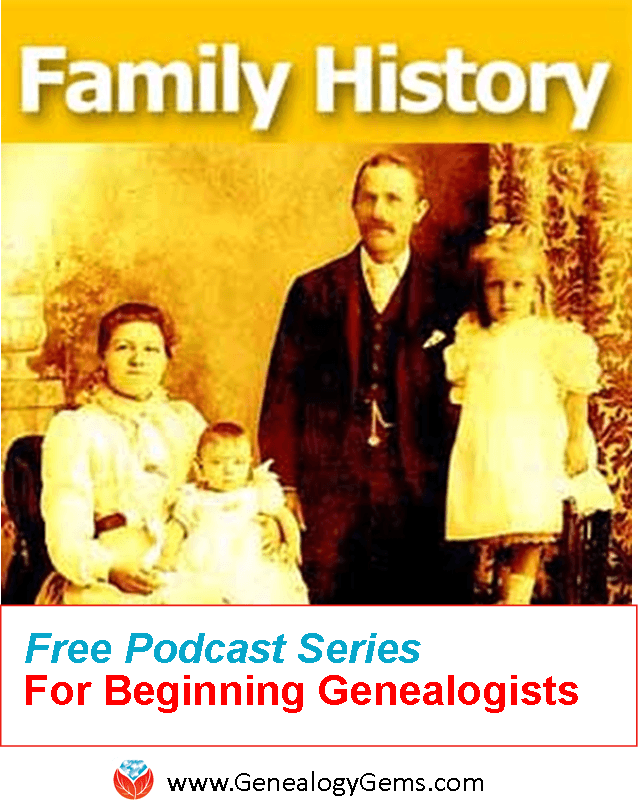U.S. Naturalization Records & More New Genealogy Records Online
U.S. Naturalization Records at MyHeritage top the charts this week for new records collections online. Over 200 million records are available for Illinois, Indiana, Iowa, Wisconsin, Connecticut, Maine, Massachusetts, New Hampshire, Rhode Island, and Vermont. Also new this week are German marriages, baptisms, and burials. Britain marriage licenses dating back to the 12th century may also pique your interest and are available online.
U.S. Naturalization Records
New this week at MyHeritage are over 200 million U.S. Naturalization Records. First is the record index for Northern Illinois, 1840-1950, containing petitions for naturalization filed in northern Illinois circuit court and INS District 9. In addition to Illinois, INS District 9 covered parts of northwestern Indiana, eastern Iowa, and southern and eastern Wisconsin. Data collected prior to 1906 was limited, likely containing just the name of the petitioner, their country of origin, and record dates and numbers. After 1906, you’ll be more likely to see records with not only names, but also addresses, birth dates, witnesses present, and date and place of arrival the U.S.
Also new is the Naturalization Record Index for New England, 1791-1906. This collection is an index of naturalization documents filed in courts in the states of Connecticut, Maine, Massachusetts, New Hampshire, Rhode Island, and Vermont from 1791 to 1906. The 3X5 inch cards in this collection contain limited information. But the 5X8 inch cards will likely contain the name of the petitioner, petition for citizenship, oath of allegiance, record of previous citizenship, place and date of birth, occupation, place and date of arrival in the United States, name of the ship, place of residence at the time of application, and name and address of a witness to these statements.
German Marriages
Genealogy Giant website Ancestry.com has a new collection of Eberswalde, Germany, Marriages, 1874-1936. Within these records, you can find a wealth of information, including names, occupations, birth date, parents, witnesses, and more. Each document has a front and back and are displayed one after the other. Additional events from the life of the couple were sometimes recorded later on in the margins, but these notes are not indexed. In addition to these civil registers, complementary alphabetical directories of names may also have been created. These directories may tell you the names of the bride and groom, occupations, residence, and cross-reference to the marriage register.
Ancestry has also recently partnered with FamilySearch to provide free access to Lutheran Baptisms, Marriages, and Burials, 1500-1971. From the collection description: “This collection contains parish registers from numerous Protestant communities and military garrisons found in former or modern German territories. The records are largely organized according to historical regions and church districts that may differ from current affiliations. These parish records primarily contain information about births and baptisms, marriages, and deaths and burials.” It’s important to note that this collection is in German, so you may want to reference the German Genealogical Word List on the FamilySearch Wiki.
Britain Marriage Licenses
If your ancestors were married in England, you’ll want to explore this great collection of Britain Marriage Licenses at Findmypast. Fifteen English counties are represented including London, Lancashire, Suffolk, Exeter, Lincoln, Yorkshire, and more, and records date back as early as 1115! These marriage licenses may be able to tell you the couple’s names, father’s name, and the marriage location. The collection consists of a mixture of more than 536,000 handwritten and typed record books from 1115 until 1906 provided by the College of Arms, Anguline Research Archives, and Gould Genealogy.
Reconstruct Your Ancestors’ Stories
When records have been destroyed, or simply remain elusive, you can still put the pieces together to discover your ancestors’ stories! In the new Genealogy Gems Premium eLearning Video, instructor Sunny Morton will show you how to reconstruct fascinating experiences from your own family history by combining clues from your family’s knowledge, documents from genealogy websites, good historical research and Googling to fill in the gaps. All while learning the riveting story of one of the worst disasters in U.S. history. Members can watch right now by clicking here. Not a member? Sign up today!
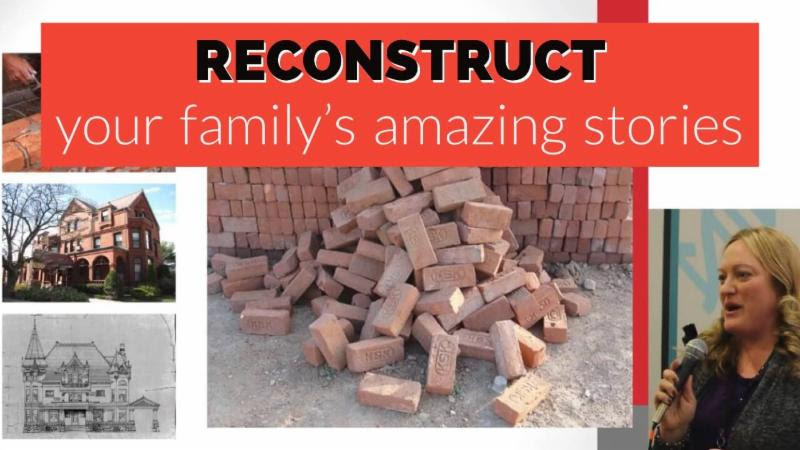

Lacey Cooke
Lacey has been working with Genealogy Gems since the company’s inception in 2007. Now, as the full-time manager of Genealogy Gems, she creates the free weekly newsletter, writes blogs, coordinates live events, and collaborates on new product development. No stranger to working with dead people, Lacey holds a degree in Forensic Anthropology, and is passionate about criminal justice and investigative techniques. She is the proud dog mom of Renly the corgi.
Disclosure: This article contains affiliate links and Genealogy Gems will be compensated if you make a purchase after clicking on these links (at no additional cost to you). Thank you for supporting Genealogy Gems!

